第30章 Chapter VII. Early Days At Tuskegee(2)
At the time I went to Alabama the coloured people were taking considerable interest in politics, and they were very anxious that I should become one of them politically, in every respect.
They seemed to have a little distrust of strangers in this regard. I recall that one man, who seemed to have been designated by the others to look after my political destiny, came to me on several occasions and said, with a good deal of earnestness: "We wants you to be sure to vote jes' like we votes. We can't read de newspapers very much, but we knows how to vote, an' we wants you to vote jes' like we votes." He added: "We watches de white man, and we keeps watching de white man till we finds out which way de white man's gwine to vote; an' when we finds out which way de white man's gwine to vote, den we votes 'xactly de other way. Den we knows we's right."
I am glad to add, however, that at the present time the disposition to vote against the white man merely because he is white is largely disappearing, and the race is learning to vote from principle, for what the voter considers to be for the best interests of both races.
I reached Tuskegee, as I have said, early in June, 1881. The first month I spent in finding accommodations for the school, and in travelling through Alabama, examining into the actual life of the people, especially in the court districts, and in getting the school advertised among the glass of people that I wanted to have attend it. The most of my travelling was done over the country roads, with a mule and a cart or a mule and a buggy wagon for conveyance. I ate and slept with the people, in their little cabins. I saw their farms, their schools, their churches. Since, in the case of the most of these visits, there had been no notice given in advance that a stranger was expected, I had the advantage of seeing the real, everyday life of the people.
In the plantation districts I found that, as a rule, the whole family slept in one room, and that in addition to the immediate family there sometimes were relatives, or others not related to the family, who slept in the same room. On more than one occasion I went outside the house to get ready for bed, or to wait until the family had gone to bed. They usually contrived some kind of a place for me to sleep, either on the floor or in a special part of another's bed. Rarely was there any place provided in the cabin where one could bathe even the face and hands, but usually some provision was made for this outside the house, in the yard.
The common diet of the people was fat pork and corn bread. At times I have eaten in cabins where they had only corn bread and "black-eye peas" cooked in plain water. The people seemed to have no other idea than to live on this fat meat and corn bread,--the meat, and the meal of which the bread was made, having been bought at a high price at a store in town, notwithstanding the face that the land all about the cabin homes could easily have been made to produce nearly every kind of garden vegetable that is raised anywhere in the country. Their one object seemed to be to plant nothing but cotton; and in many cases cotton was planted up to the very door of the cabin.
In these cabin homes I often found sewing-machines which had been bought, or were being bought, on instalments, frequently at a cost of as much as sixty dollars, or showy clocks for which the occupants of the cabins had paid twelve or fourteen dollars. I remember that on one occasion when I went into one of these cabins for dinner, when I sat down to the table for a meal with the four members of the family, I noticed that, while there were five of us at the table, there was but one fork for the five of us to use. Naturally there was an awkward pause on my part. In the opposite corner of that same cabin was an organ for which the people told me they were paying sixty dollars in monthly instalments. One fork, and a sixty-dollar organ!
In most cases the sewing-machine was not used, the clocks were so worthless that they did not keep correct time--and if they had, in nine cases out of ten there would have been no one in the family who could have told the time of day--while the organ, of course, was rarely used for want of a person who could play upon it.